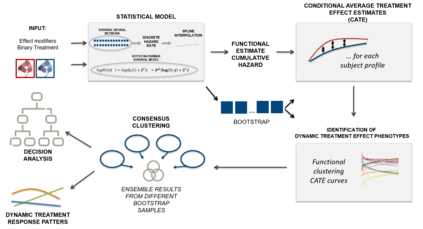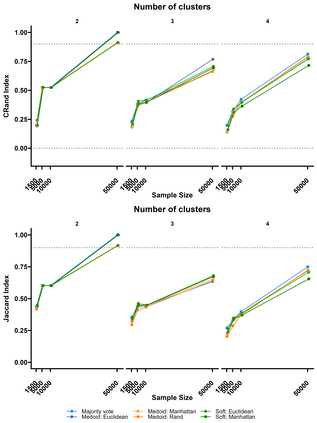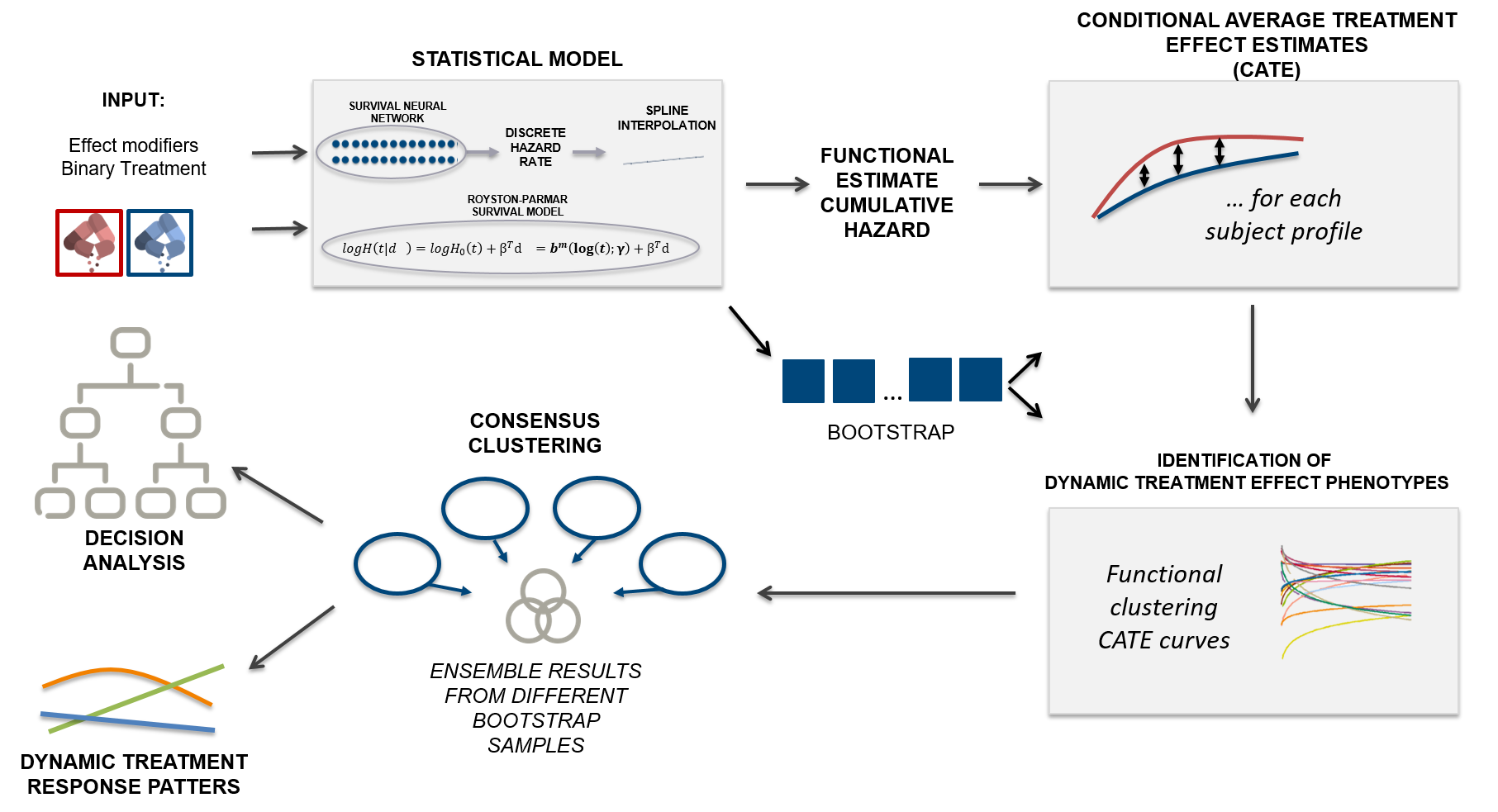In recent years, research interest in personalised treatments has been growing. However, treatment effect heterogeneity and possibly time-varying treatment effects are still often overlooked in clinical studies. Statistical tools are needed for the identification of treatment response patterns, taking into account that treatment response is not constant over time. We aim to provide an innovative method to obtain dynamic treatment effect phenotypes on a time-to-event outcome, conditioned on a set of relevant effect modifiers. The proposed method does not require the assumption of proportional hazards for the treatment effect, which is rarely realistic. We propose a spline-based survival neural network, inspired by the Royston-Parmar survival model, to estimate time-varying conditional treatment effects. We then exploit the functional nature of the resulting estimates to apply a functional clustering of the treatment effect curves in order to identify different patterns of treatment effects. The application that motivated this work is the discontinuation of treatment with Mineralocorticoid receptor Antagonists (MRAs) in patients with heart failure, where there is no clear evidence as to which patients it is the safest choice to discontinue treatment and, conversely, when it leads to a higher risk of adverse events. The data come from an electronic health record database. A simulation study was performed to assess the performance of the spline-based neural network and the stability of the treatment response phenotyping procedure. We provide a novel method to inform individualized medical decisions by characterising subject-specific treatment responses over time.
翻译:暂无翻译








